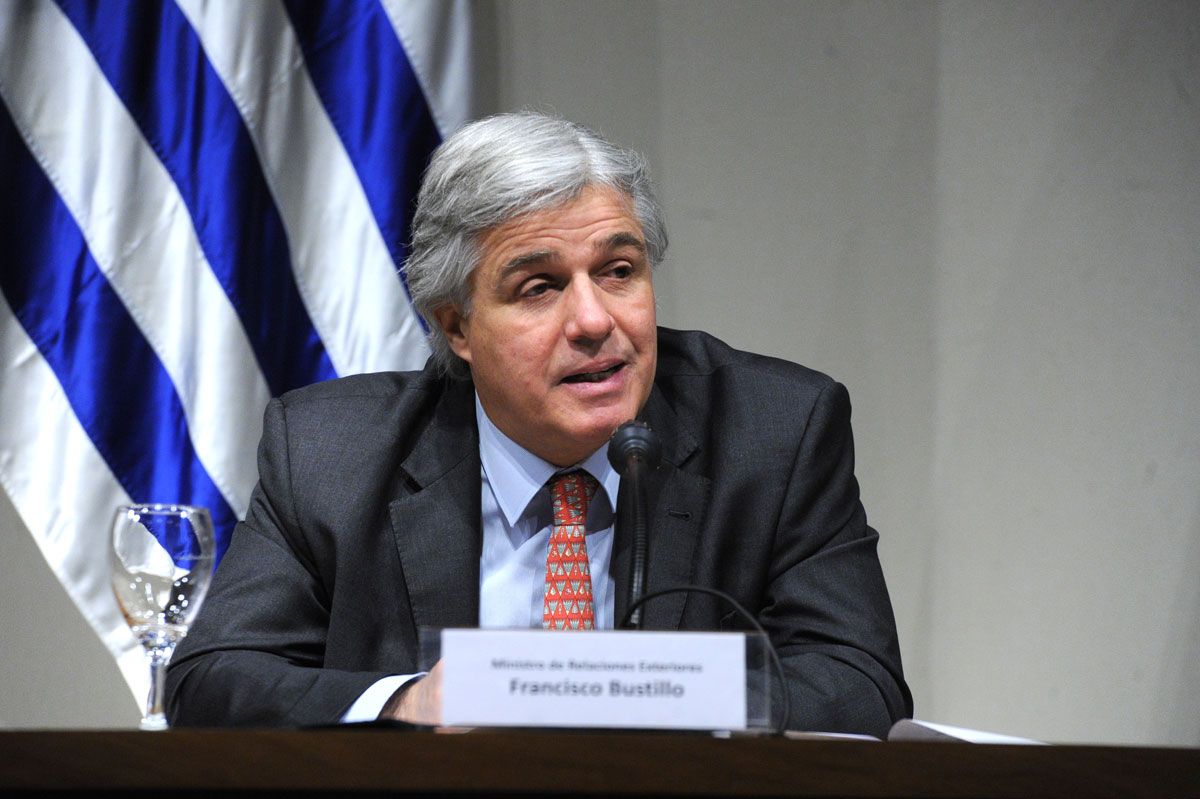RIO DE JANEIRO, BRAZIL – The Uruguayan Ministry of Foreign Affairs, Francisco Bustillo, has delayed its expectations on the time it will take to advance in the negotiations with China for a Free Trade Agreement (FTA), whose feasibility study had been announced for December but has not yet materialized, in a bilateral conversation that also brings together the reticent positions of Argentina and Brazil.
The issue was addressed by Francisco Bustillo during a visit on May 11 to the International Affairs Committee of the Senate. There, in line with the proposals of President Luis Lacalle Pou, the Foreign Minister was also critical of Mercosur’s “immobility” in terms of international insertion and said that “there is no explicit will to advance” in the modernization of the bloc, a constant demand of the Uruguayan government.
“We surely cannot afford the immobilism that Mercosur has gained in terms of international insertion. So, although our first option is to negotiate with our partners, in no case are we going to stop at the desire to move forward with third parties,” said Bustillo.

The foreign minister pointed out that, when referring to “sincere” or “modernization” of Mercosur, Uruguay does not propose to leave the bloc and affirmed that the first option is joint negotiations because it is better to be accompanied by the partners. “What is happening is that, unfortunately, there are fifteen or twenty negotiations underway, and none of them are moving forward. That is what we have been able to confirm,” he added.
He also stated that Uruguay accepts to talk about “different rhythms” but remarked that the government is willing to “move forward and conclude the negotiations” even if none of the bloc’s partners are involved.
FTA WITH CHINA
Uruguay’s Ministry of Foreign Affairs also addressed before Parliament the progress of talks with China for an eventual FTA with the Asian country, Uruguay’s main trading partner, which in 2021 accounted for 28% of total goods placements.
“Unfortunately, at the time, when we informed the public about the possible future agreement with China, we echoed the response of that country regarding the concern of completing the feasibility study last December. We were held hostage in that situation in which China had ambitiously raised the possibility of starting negotiations immediately,” said Bustillo.
The Chancellor added that now he is trying to show that the work is “moving forward”, although he avoided setting a deadline. “We do not dare to set a deadline because, in the end, it does not depend only on us; if it did, we would have already signed many agreements. Unfortunately, like all negotiations, this one also has its rhythms, its imponderables, and, in this specific case, a particular context which, in the first instance, was marked by the pandemic and, now, by the war, which is not a minor issue”, he said.
What Uruguay pays in meat tariffs
Uruguayan beef and sheep meat paid tariffs of US$337 million in 2021, the highest record in history and 66% higher than the previous year. In 2020, total tariffs paid for meat had been US$204 million, and in 2019, US$216 million.
Ninety percent of the previous year’s amount corresponded to beef, 5% to sheep meat, and the remaining 5% to its giblets, according to data from the National Meat Institute (Inac) released last week.
Only beef placed in China during 2021 paid US$188 million, 62% of the US$305 million for tariffs on this product. Sheep meat entering the Chinese market paid US$16 million, 99% of the total, as Brazil is the second most relevant destination, but Uruguay accesses without tariffs because it is a Mercosur member. The report detailed that Uruguay accesses China with tariffs of 12% for most products.
The doubling in 2021 of the total value exported to China compared to 2020 was one of the main reasons that marked the increase last year. “While in 2020, US$749 million of beef was exported to this market, in 2021, the figure increased to US$1.5 billion. As Uruguay maintained its ‘default’ access conditions, the amount paid in tariffs increased proportionally,” the Inac report detailed.
According to data from Uruguay XXI, the state agency in charge of promoting foreign trade, of the US$3.3 billion placed in China in 2021, 45% was beef, 13% cellulose, and 12% soybeans.
With information from Bloomberg Línea

